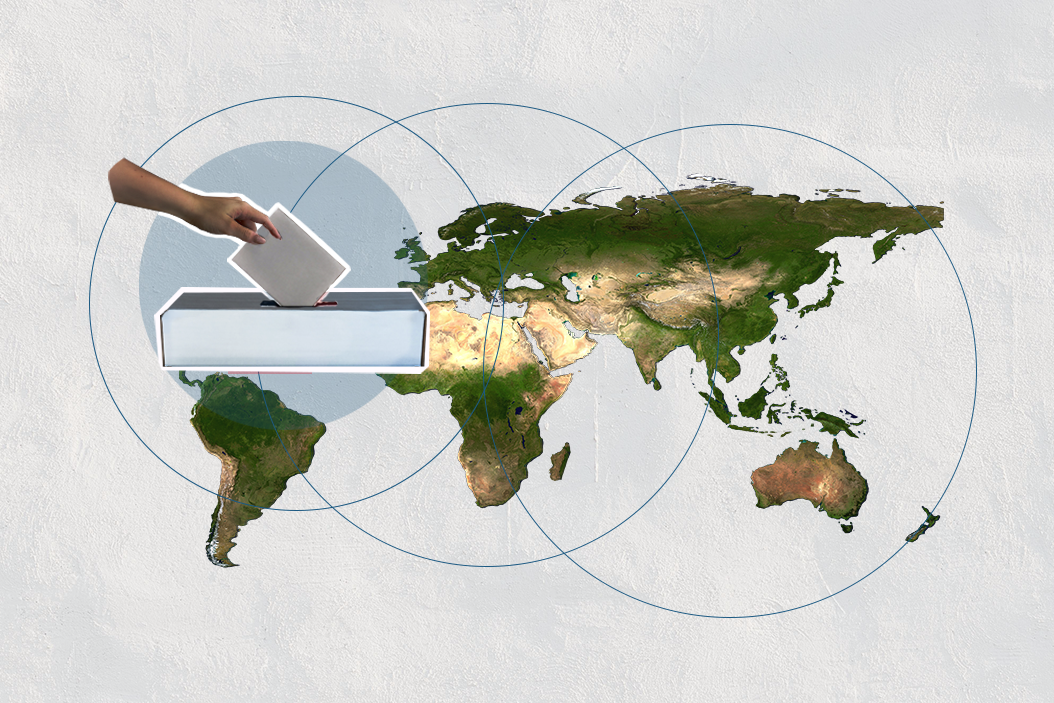The Biden administration’s much-touted Summit for Democracy kicks off on Thursday. A total of 110 countries are invited, with some puzzling choices and omissions.
Illiberal Poland is attending, but not illiberal Hungary. Seven of the 10 Southeast Asian nations are out, but several quasi-democracies in Africa are in. Brazil's authoritarian-minded President Jair Bolsonaro is an acceptable democrat for Joe Biden, but not Bolivia's democratically-elected President Luis Arce.
The criteria to get a ticket is as unclear as what Biden’s democratic virtual get-together wants to achieve.
The official goal of the two-day meeting is “to set forth an affirmative agenda for democratic renewal and to tackle the greatest threats faced by democracies today through collective action." Leaders from governments, civil society, and the private sector will give speeches and debate things like press freedom, misinformation, and digital voting.
And… that’s all, folks.
So, what is it really about? Biden says the talk shop aims to promote democracy and push back against rising authoritarianism around the world. But many countries obviously upset at not getting an RSVP don't buy what the US president is trying to sell.
What America really intends, those absent from the event think, is to form a club of Western-aligned democracies along with some fledgling ones elsewhere that the US wants to have on its side to counter China and Russia.
In the lead-up to the event, Biden administration officials brushed off these concerns, arguing that "no democracy, including the United States, is perfect." Yet, having a single country arbitrarily decide who’s democratic is hardly democratic at all.
Who’s in and who’s out seems to align more with America’s geopolitical interests than anything else. For instance, the US didn’t invite Turkey, a NATO ally, because President Recep Tayyip Erdogan certainly has an authoritarian streak. But he still needs to win elections to stay in power. The bigger issue is that Erdogan and Biden rarely see eye-to-eye on anything, and the Turkish leader is on good terms with bad boys Vladimir Putin and Xi Jinping.
The guestlist also shows that Biden is wooing US-China straddlers. One of those is the Philippines, a reliable US ally until President Rodrigo Duterte embraced China. Once the term-limited Duterte is out of office next year, Biden wants to make sure whoever succeeds him — likely the son of the country's late dictator — will be cozy with Uncle Sam.
Finally, uninvited nations probably think Biden should get his own house in order before teaching any democracy lessons. After all, just 11 months ago rioters attacked the US Capitol to overturn the result of the 2020 presidential election.
Since then, many Republican-led states have passed election security laws that Democrats say restrict voting rights for minorities. And both parties have gerrymandered congressional districts to secure easy wins and make races less competitive overall.
If Biden wants to make this about Us vs Them, don’t be surprised if many of the countries he’s ignored turn on America. I’m not democratic enough for you? Fine. Maybe that's not such a big deal, and China and Russia will have my back.More For You
At the 2026 Munich Security Conference, entrepreneur and Project Liberty founder Frank McCourt makes the case that the internet, and the AI systems rapidly reshaping it, must be redesigned to serve people, not platforms.
Most Popular
At the 62nd Munich Security Conference, Parag Khanna, founder and CEO of AlphaGeo, says globalization isn't dead, it's evolving. Speaking with GZERO’s Tony Maciulis, he explains that countries are forming flexible alliances that expand and shrink based on their interests. “You’d rather be in the tent...if it suits your interest than not in it,” Khanna notes, highlighting how the US, Europe, and Asia are adapting to shifting global priorities.
Sovereignty has become one of the most powerful, and least defined, words in tech policy. At the 2026 Munich Security Conference, SAP global head of government affairs, Wolfgang Dierker, explains why governments and enterprise customers are demanding more control over their data, cloud infrastructure, and AI systems amid rising geopolitical uncertainty.
On the sidelines of the 2026 Munich Security Conference, Annemarie Hou, Executive Director of the United Nations Office of Partnerships, joined Tony Maciulis to discuss the power of women leaders in global decision-making.
